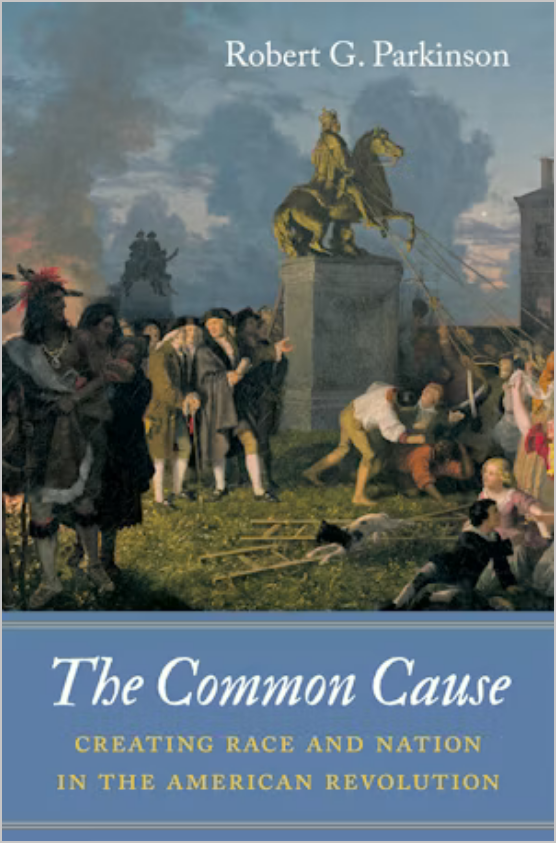Robert Parkinson, in his brilliant, timely, and indispensable book The Common Cause: Creating Race and Nation in the American Revolution, offers a provocative alternative to the conventional views that blacks’ perpetual alien status in the United States is simply a natural outgrowth of having been enslaved, and that making them—and Native Americans—outsiders in the United States was a post-Revolutionary, early-nineteenth-century project. Americans were deciding who was “in” and who was “out” as soon as they began to fight Great Britain.
Parkinson does not discount slavery’s importance to shaping attitudes about African-Americans. Nor does he deny that the early American republic saw the rise of open calls for a “white man’s government” and the formalized policy of Indian Removal. But he goes back to 1775, when the American Revolution turned into the Revolutionary War, to locate the origins of racial exclusion in the society that would become the United States of America. It was during these days, Parkinson says, that patriot leaders made a fateful choice. They embarked upon a specific and concerted plan to place blacks and Native Americans—no matter what their condition, whether they believed in the patriots’ ideals or not—firmly outside the boundaries of America’s experiment with democratic republicanism.
“Men like Jefferson, Adams, Franklin, and Washington,” Parkinson writes, “developed a myth about who was and was not a part of the Revolutionary movement; about who had an interest and who did not.” Other esteemed advocates of the Revolution, such as Thomas Paine and the Marquis de Lafayette, joined the effort. According to Parkinson, these men chose to prosecute the American war for independence in a way that put race at the heart of the matter. They used—actually helped foment—racial prejudice as the principal means of creating unity across the thirteen colonies in order to prepare Americans to do battle with Great Britain. The base sentiments they promoted for “political expediency” survived the fighting, and the “narrative” that dismissed blacks and Native peoples as alien to America—and conflated “white” and “citizen”—“lived at the heart of the republic it helped create for decades to come.” It kept both groups from “inclusion as Americans.” Parkinson is blunt about the results of this program:
This refusal to extend to African Americans and Indians the benefits of emerging concepts of liberal subjectivity in the form of citizenship had ghastly consequences, for it legitimated and excused the destruction of vast numbers of human beings.
